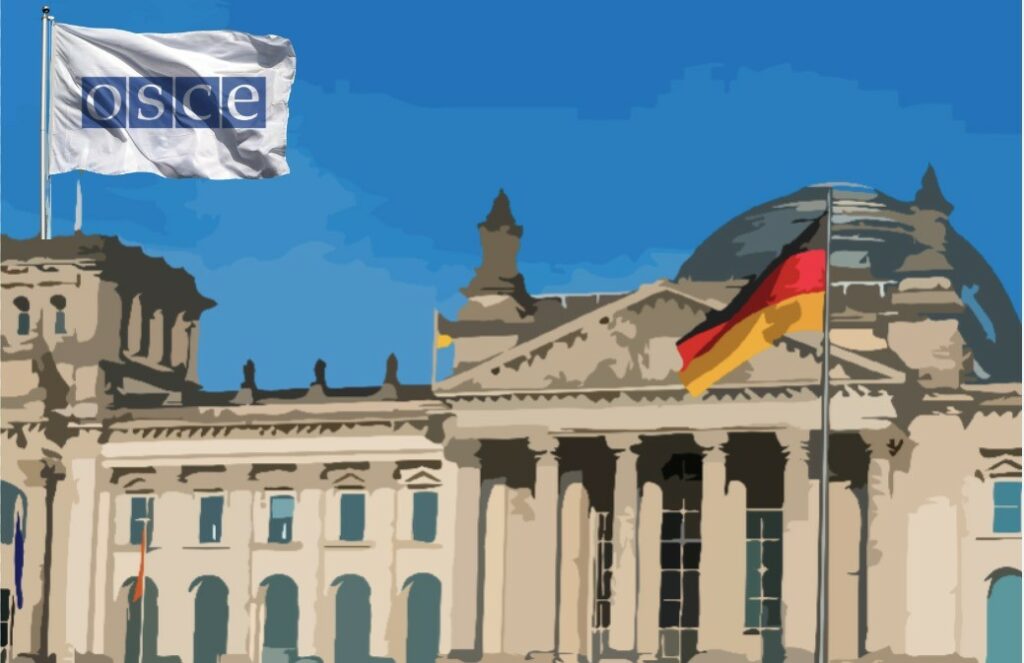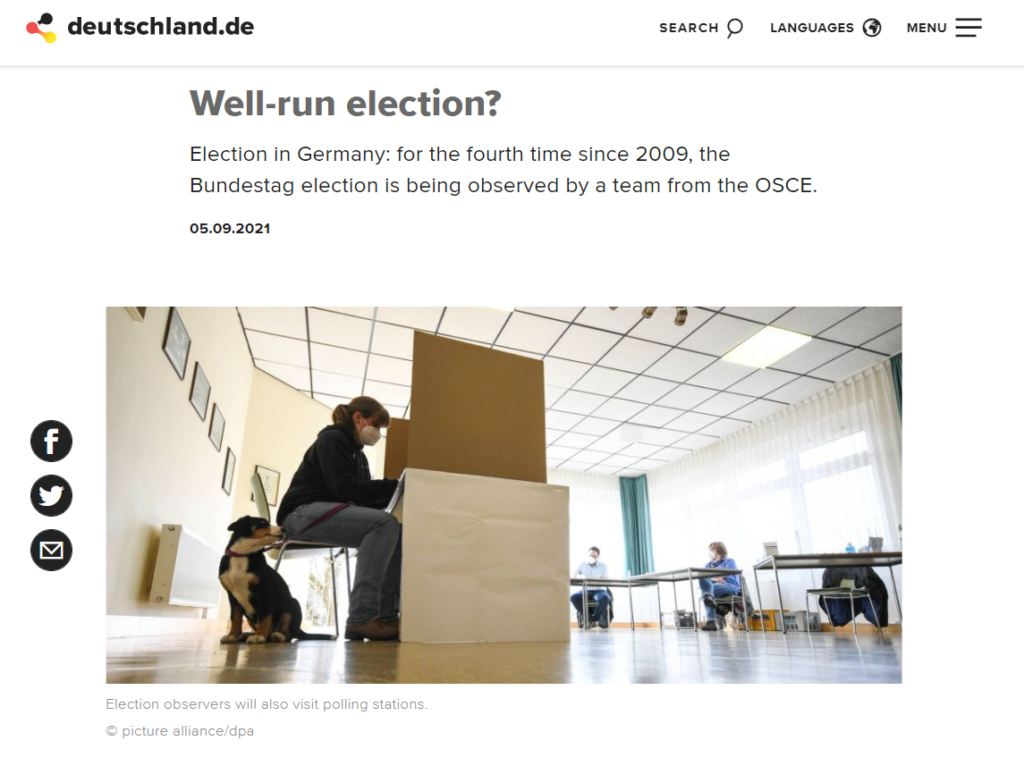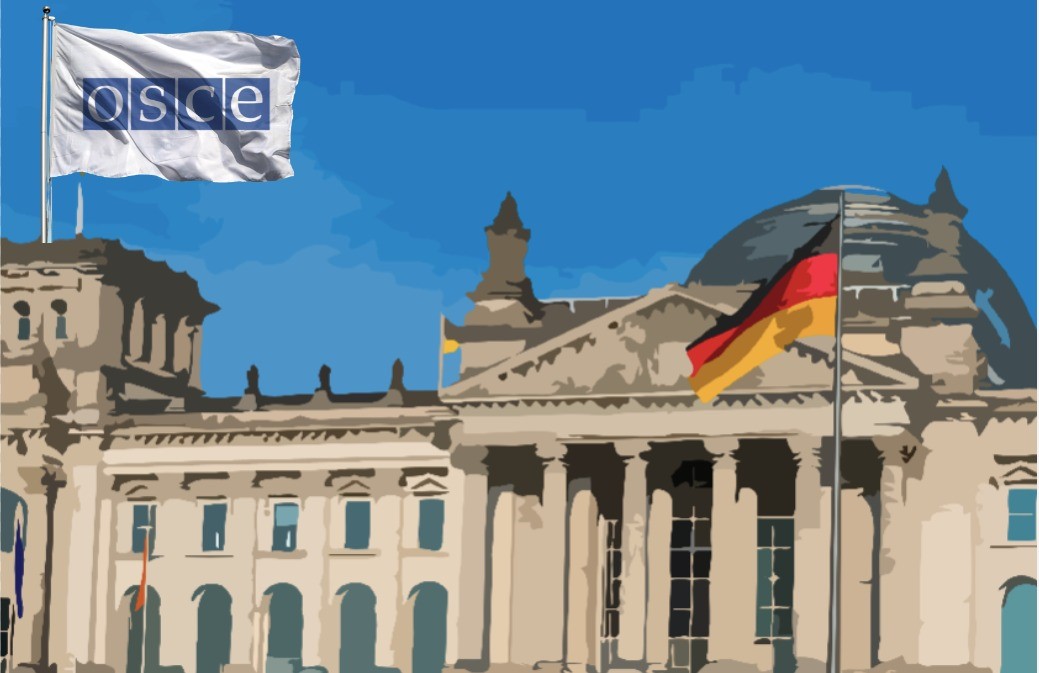
The Office for Democratic Institutions and Human Rights of the OSCE observes elections within all its member states. The ODIHR recently deployed a mission of four experts to Germany for the federal elections on September 26th. Here’s how different media view the work of the OSCE as well as the integrity of German politics.
The German Media and its slight bias
The German platform RND is a digital media network run by the independent, non-governmental publisher Madsack Media Group. RND published on September 28th an article about the OSCE’s initial findings on the German election. The main source is the team leader of the Election Expert Team. The wording is predominantly neutral and although the circumstances in Berlin on the day of the election are described as chaotic without providing any explanation (the Berlin Marathon took place exactly on the same day of the election), but considered that the election experts perceived this as one of several reasons for the chaotic circumstances. RND’s source also provides an explanation for the seemingly small size of the election mission.
The article is relatively neutral and doesn’t contain any valuation or opinion. Neither German democracy nor the OSCE/ODIHR election mission seems to be considered critical, as the source’s statements about citizens’ confidence in their election processes are not contradicted. And while there may be a slight positive bias towards the aforementioned institutions (hence no critics of the OSCE or ODIHR or outside sources are heard), this rather objective perspective speaks to a high standard of journalistic ethics within RND, considering that the elections in Berlin did not go as planned. As Berlin held elections at federal, state and local council levels at the same time, there was a debate about violations of election rules which could have affected the results – not in the whole country but in Berlin.

Prior to the elections, the German news and information platform deutschland.de published an article on the procedure of the OSCE-election. The platform itself is a service of Frankfurt-based Fazit Communication GmbH, which is operated in cooperation with the Federal Foreign Office. It is therefore a government-close media. The article seeks to explain how the ODIHR intends to proceed before and during the elections. Deutschland.de claims that the interest of an election mission is not limited to observing election day itself, but also processes and circumstances leading up to it, such as campaign financing. The article criticizes the German government, as ODIHR has already condemned a lack of transparency in this matter during and after the past federal elections. The source of the article is ODIHR itself and its press officer.
However, deutschland.de agrees with RND that there is a high level of trust in the integrity of the election process. Deutschland.de is largely neutral in tone, without commenting on or evaluating the circumstances described and without a dominant critical stance toward the institutions involved. However, it contains the same slightly positive bias as RND, as no counter-opinions on the ODIHR and its procedures (from sources outside the OSCE) have been included in the article.

The Russian Media, its neutrality and the significance of the OSCE
Moving on to the analysis of the Russian media, which also covered the parliamentary elections in Germany, we want to focus our attention on one of the articles of the newspaper RBC. In Russia, the RBC Group of Companies is one of the largest multimedia holdings. According to the Russian company Medialogia, as of July 22nd, 2020, the RBC news site led the Top 30 most quoted Russian internet resources in the media in June 2020, more than twice ahead of the second-place internet resource. The parent company of RBC is Sotol Projecе Joint Stock Company, accordingly, this media is an independent, non-governmental source.
The RBC article about the parliamentary elections in Germany is rather analytical, it discusses the election results using statistical data, possible voting methods and also examines the current economic state of the country and, based on this, gives a forecast of the situation in the future. After the election, the main emphasis in the RBC article was on the results, but they did not comment on the number of observers from OSCE.
The main media attention was focused on the CDU and not on its previous leader (Angela Merkel) – the achievements of the party in the previous elections and its result in 2021 (which is the worst of all time) were analyzed. We would also like to note that the article published by RBC does not mention international observers in any way and does not say anything about the need for their presence at the elections or about their impartial assessment of the electoral process. The tonality of this article is quite professional, the words are used without emotional coloring. Most of the article is devoted to the analysis of the personalities of candidates for the post of Chancellor of Germany and does not mention the number of international OSCE observers.

ITAR-TASS (International Telegraph Agency of the Russian Federation) is one of the leading state news agencies in Russia. The news agency, founded in Soviet times, continued to exist and operate at the federal level after the collapse. According to the Medialogia company for September 2021, TASS has already been the leader among Russian news agencies in terms of a citation for the second year.
The article on the parliamentary elections in Germany published by them is analytical in nature. The publication covers the upcoming (currently completed) elections, analyzes political parties and their representatives, analyzes the electoral system (mixed), announces the possible voting methods provided to the citizens of the country. Also mentioned was the topic of external interference in the elections and the accusation of this on Russia. TASS analyzes the problem from different angles, from the accuser to the defender, objectively. It concerns the possible geopolitical consequences of elections and which electoral processes, in general, are preferable for German citizens.
Just like RBC, the article does not say anything about international observers. TASS is proficient in a language that is professional but understandable. You can find metaphors, for example, Germany’s Historical Turn to the Left. The article is completely devoted to the analysis. Impartiality, the topic of federal elections and candidates is analyzed, but there is no mention of the number of international OSCE observers.

https://tass.ru/mezhdunarodnaya-panorama/12508563?utm_source=vk.com&utm_medium=social&utm_campaign=smm_social_share
The Special Case of RT DE
Interestingly, the Russian governmentally financed media RT DE reported on the OSCE observer mission before the federal election. RT DE published an article on September 22nd and claimed that the number of OSCE observers in 2021 would be much smaller (presumably four observers) than in the 2017 elections in Germany (presumably 59 observers).
The article is a transcript of questions asked during the government press conference and its content is consistent with the protocol from September 22nd. The questions RT asked during the press conference are phrased in a relatively neutral wording, but the title of the article and its introduction, have a rather provocative and biased tone. And although one could argue that a small expert team of four election experts is not enough for a country with around 60 million people eligible to vote, the article omitted critical information about the fact that the 2017 election mission was accompanied by members of the OSCE Parliamentary Assembly. The article also provides only one source for the number of observers in 2021, not the number they claim for the 2017 election. In addition, the German government appears to be responsible for the number of observers, although the ODIHR sends the election missions and decides over the size of the missions. The tone of the RT article can therefore be described as critical of the German government.

Conclusion
The 2021 German parliamentary elections were important for the citizens of Germany due to the changes they brought. Both German and Russian media covered the event but focused on different aspects. None of the analyzed Russian media mentioned international observers, while the German media did. Both sides published articles with neutral coloring: the German media reviewed the elections and the observation in detail, while Russian publications analyzed the event impartially summarizing the occasion as a whole. The international media RT DE is the exception in this case, not only focusing on the observations but also presenting an opinion.
RESEARCH | ARTICLE © Tatiana Gotishan, Nikolay Pershin, Olga Panenkova, Sofia Fabritziy, Jan Сlaas Rosebrock, Heba Alkadri.
This is the media analysis linked to the cross-national fact check on RT DE article about OSCE observers at elections in Germany by Jade University College Wilhelmshaven, Germany and Lobachevsky University, Russia, and the blogpost about during cross-national collaboration by Jade University College Wilhelmshaven, Germany.
Leave your comments, thoughts and suggestions in the box below. Take note: your response is moderated.







